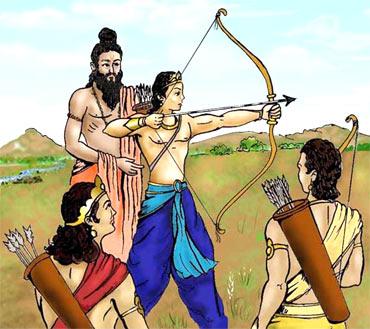
If you don't know where you're headed in life and are looking for some quick inspiration, then The Superstar Syndrome: The Making of a Champion authored by Myra S White and Sanjay Jha is for you.
From Jack Welch to Ratan Tata, it chronicles the life and times of 80 leaders from various domains who are superstars in their own right.
Here, we bring you an excerpt from the book for you to read and be inspired from:
Superstars have missions.
They know what they want to accomplish.
Moreover, they choose missions in which they intensely believe.
To maintain their momentum, they create short-term challenges and goals that energize and empower them.
They also retain the flexibility needed to capitalize on new opportunities.
and find different routes when they encounter roadblocks.
Finally, superstars never lose sight of where they are going and what they want to accomplish.
Superstars are like Arjuna, in the Mahabharata, whose focus on becoming Drona’s best martial arts pupil never wavers.
One day, Drona places a wooden bird in a tree to test his pupils.
He tells them that they are to shoot the bird through the head but first they must tell him what they see.
Each pupil steps forward when it is his turn and says, ‘I see the tree, thyself, my brothers and the bird.’
Drona then goes on to the next pupil.
Finally the only pupil left is Arjuna.
Drona says to him, ‘Seest thou, O’Arjuna, the bird there, the tree and myself.’
Arjuna answers, ‘I see the bird only, but nor the tree or thyself.’
Pleased with this answer, Drona then asks Arjuna to describe the bird.
Arjuna replies, ‘I see only the head of the vulture, not its body’ at which point, the ‘hair on Drona’s body stood on end from delight.’
He then said to Arjuna, ‘Shoot.’
Arjuna let his arrow fly severing the bird’s head.
Purchase a copy of the book here!
Published with the kind permission of Random House Publishers India Pvt. Ltd. The book is priced at Rs 399.
Please click NEXT to continue reading...
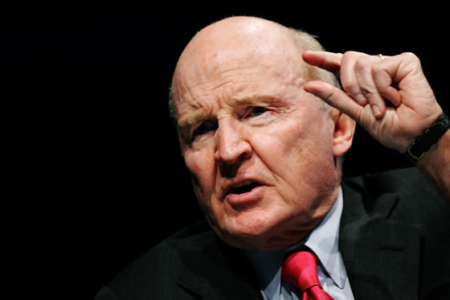
Choose a Mission
Choosing a mission is an important first step on our journey to becoming a superstar.
Without one, it is difficult to know whether we are going in the right direction or even if we are making progress.
Superstars start their journeys with a vision of where they want to go.
Jack Welch decided early in his career at General Electric that he wanted to be CEO.
From the time George Lucas entered film school, he was determined to make movies.
Sunil Gawaskar wanted to be a batsman right from when he first started playing cricket.
Film director Anurag Kashyap committed himself to a career in films after attending The International Film Festival of India where he watched 55 films.
Two months later, he was in Mumbai pursuing his mission.
Missions don’t have to be detailed plans. Most superstars initially start with just a direction.
They expand and elaborate on their mission as they move forward. When Richard Branson left secondary school, he was clear about the fact that he wanted to start businesses but he didn’t know exactly what type.
Sam Walton made retail his mission after discovering as a management trainee at J C Penney how much he loved selling people merchandise.
At that point, he didn’t know what he wanted to do in retail.
It was only three years later after completing his military service that he decided to open his own variety store.
The idea of starting Wal-Mart didn’t occur to him until many years later.
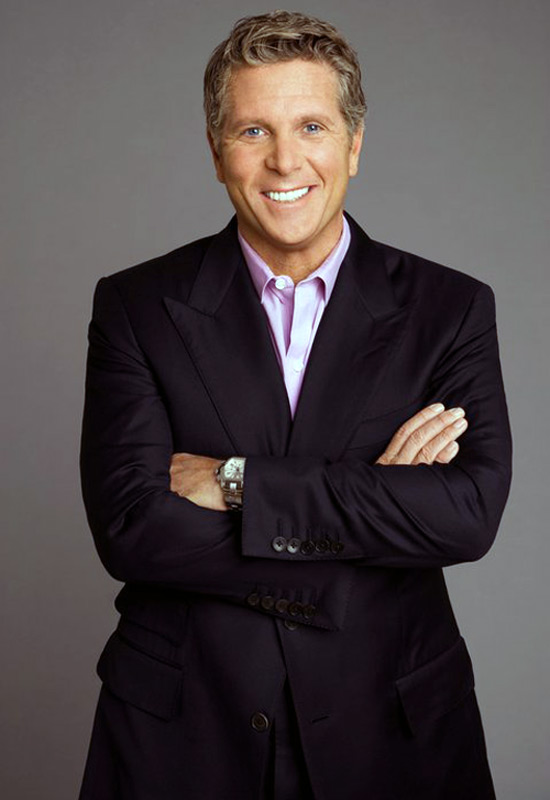
The value of having a mission is that it gives us a direction and increases our chances of success by delineating the steps that we need to take to get to our destination.
If we lack a mission, we can waste time aimlessly moving between different jobs and even careers.
When Donny Deutsch, the advertising mogul, graduated from college, he wasn’t sure what he wanted to do.
He was attracted to advertising so he accepted a job at Ogilvy & Mather, a large prestigious New York advertising firm steeped in years of tradition.
Donny soon found the firm’s culture so oppressive that he left and went to California where he did nothing for six months.
When he returned to New York, he went to work at his father’s small advertising agency as an account executive, but his heart was not in it.
His father finally said to him, ‘You’re not taking this seriously. Take a walk. Find work you love.’
So Donny sold Gitano jeans at a flea market.
It was six months later when his father considered selling his agency that Donny found his mission.
Feeling that his father wasn’t really ready to sell, Donny decided to build his father’s agency into a major player in the advertising world.
Once Donny embraced this mission, the actions that he needed to take to get there became obvious.
He started searching for bigger and better accounts, using every strategy he could devise.
In less than a year he acquired the Pontiac Dealers Association account, which was four times the agency’s usual account size.
This account set him on the path to building the agency into a billion dollar media business.
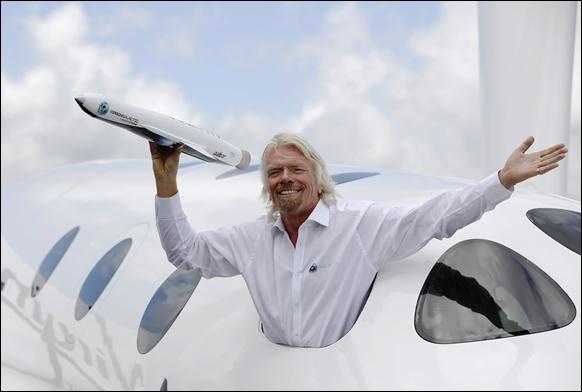
A mission also serves to attune us to opportunities that we would have missed if we didn’t know where we were going.
When opportunities arise that further our mission, we are more likely to seize them and spring into action.
Even as a child, Richard Branson was always clearly focussed on where he was going and quick to grab opportunities to get there.
When Richard was five, his Auntie Joyce promised him 10 shillings if he learned how to swim while they were on summer holiday.
This became Richard’s holiday mission.
Each day he spent hours in the cold sea trying to swim but had no success.
At the end of holiday Aunt Joyce told him not to worry, ‘There’s always next year.’
Richard, however, didn’t want to wait until next year.
On the drive home he spotted a river through the car window.
Seeing it as his last chance to learn how to swim before the holiday ended, he pleaded with his father to stop.
After the car came to a stop, Richard tore off his clothes, raced down to the river, and leapt in, wearing only his underpants.
A powerful current dragged him downstream while he desperately tried to keep his head above water.
Pulled under by the water, he felt his foot hit on a stone on the bottom. He pushed off and suddenly he was swimming.
If Richard had not been on a mission to learn how to swim, he wouldn’t have noticed that they were driving by a river.
It was his awareness of what he wanted to achieve that attuned him to the opportunity and moved him to action.
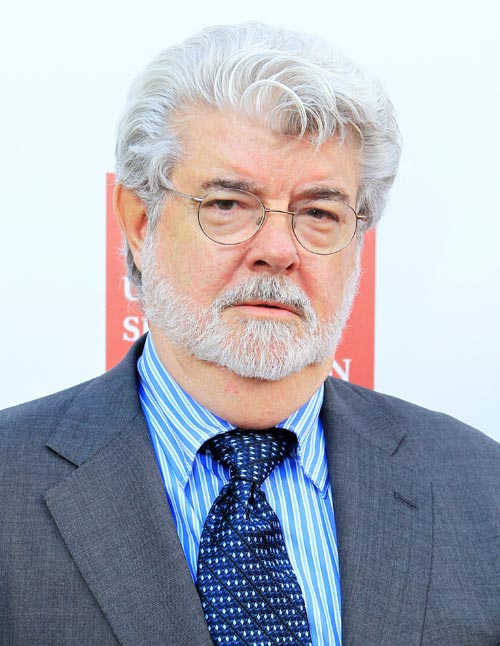
George Lucas was similarly quick early in his career to seize opportunities.
When he entered film school, he knew that he wanted to make movies.
As a result, he didn’t wait until he left film school to make a movie.
While his fellow students lamented that they wished that they could make a movie, Lucas leapt right in and made a movie in his first class. He recalls:
‘The first class I had was an animation class. It wasn’t a production class. And in the animation class they gave us one minute of film to put onto the animation camera to operate it, to see how you could move left, move right, make it go up and down. They had certain requirements that you had to do. You had to make it go up and you had to make it go down, and then the teacher would look at it and say, “Oh yes, you maneuvered this machine to do these things.”
It was a test.
'I took that one minute of film and made it into a movie, and it was a movie that won about 25 awards in every film festival in the world, and kind of changed the whole animation department.
Meanwhile all the other guys were going around saying, "Oh, I wish I could make a movie. I wish I was in a production class."'
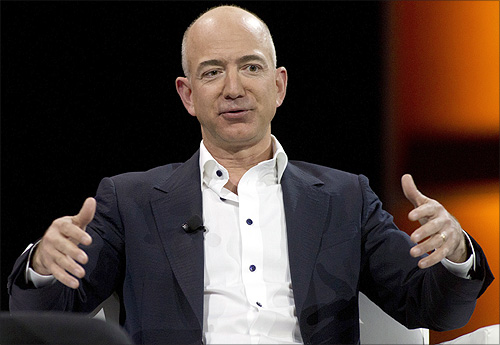
Jeffrey Bezos’s mission when he graduated from Princeton was to start a computer business but he decided that first he should acquire some business experience.
Ten years later when the Internet developed, he saw his opportunity.
He didn’t hesitate.
He leapt into the water and started building Amazon into a viable business. He relates:
‘I knew that when I was 80, I was not going to regret having tried this. I was not going to regret trying to participate in this thing called the Internet that I thought was going to be a big deal. I knew that if I failed I wouldn’t regret that, but I knew the one thing that I might regret is not ever having tried. I knew that would haunt me every day, and so when I thought about it that way, it was an incredibly easy decision.’
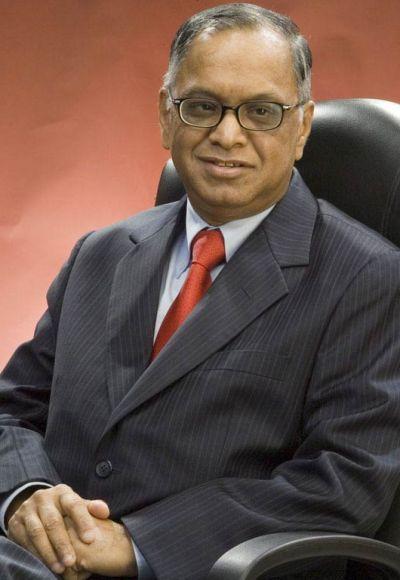
Narayana Murthy was similarly ready to start Infosys when a ruling by a US judge opened up the software market to third-party vendors.
As a young man he initially had Leftist leanings and as such, never envisioned himself as a future capitalist.
An incident that occurred on a trip home from Paris on the Sofia Express changed this.
He had been discussing the difficulties of living in a communist country with a young woman in his compartment, as the train passed through Bulgaria, when policemen burst in and removed them from the train.
He never saw the young woman again.
He was dragged to the end of the railroad platform and imprisoned in a small 8x8 foot room with a stone floor. He relates:
‘I was held in that bitterly cold room without food or water for over 72 hours. I had lost all hope of ever seeing the outside world again, when the door opened. I was again dragged out unceremoniously, locked up in the guard’s compartment on a departing freight train and told that I would be released 20 hours later upon reaching Istanbul.
The journey to Istanbul was lonely, and I was starving. This long, lonely, cold journey forced me to deeply rethink my convictions about Communism.
Early on a dark Thursday morning after being hungry for 108 hours, I was purged of any last vestiges of affinity for the left.
I concluded that entrepreneurship, resulting in large-scale job creation, was the only viable mechanism for eradicating poverty in societies.'
In 1981, when the market for software expanded, Murthy saw his opportunity and founded Infosys with six friends.
When we have a definite mission, we don’t get lost.
We aren’t afraid to take action.
Like Richard Branson, George Lucas, Jeffrey Bezos, and Narayana Murthy we leap into the river without worrying whether we will drown.
Our attention is directed outside of ourselves on our environment searching for opportunities that will help us pursue our mission.